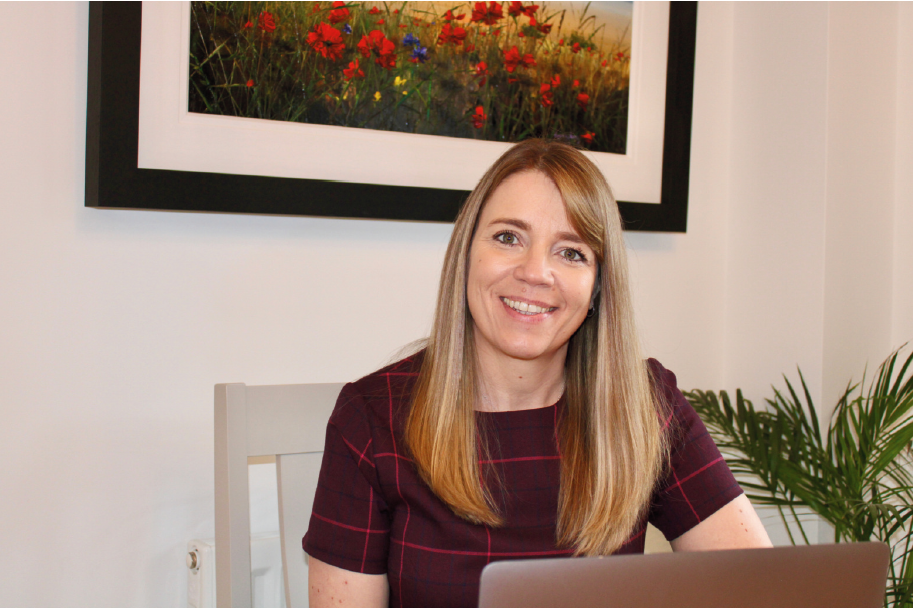Emotionally healthy children need their parents to do these 10 important things, according to experts
Number two is especially important


We all want our children to be emotionally healthy, but teaching this in the right way can be a minefield. Therapists come together to share the top 10 ways parents can raise kids to be in tune with their emotions.
Parents have many qualities they want to instil in their children - they'll want to be prepared to raise confident kids, and will be keen to know how to raise resilient kids too. Clearly, everyone will want to raise happy kids - which doesn't actually mean constant smiles and laughter. Sometimes, the amount of very important qualities to nurture in your child can feel overwhelming. It's therefore really helpful, that we have narrowed down what children really need to be emotionally healthy, into 10 straightforward strategies.
Parenting is a huge responsibility and while parents want to do the best possible job, to condense the most important parenting values into one place and expect parents to get them all right, is a challenge. However, we've spoken to BACP registered therapists Nicola Saunders, Kemi Omijeh, and Jenny Warwick, who've helped us compile a list of the 10 things children most need from their parents to be emotionally healthy - read on for their expert opinions.
10 things children need from their parents
- Listen to them. Therapist Nicola Saunders says "Listening sounds easy, but how often do people speak to us, and we’re not really listening? We’re simply picking up keywords and responding accordingly to what we think we have heard. Despite the fact that children are often constantly chattering about all sorts, it's really important that we listen to them. This supports their growing sense of self-esteem and confidence. It makes them feel like what they have to say is important, and they feel valued.
- Emotion communication. Nicola adds "Talking about emotions is really important. Creating an environment where it is okay to share how we are feeling and what we are feeling in a safe environment helps us manage emotions more effectively and supports positive mental health now and in the future. If children are discouraged from expressing or discussing emotions, it makes meeting their emotional needs incredibly difficult. Many adults do not fully understand their own emotional makeup, and therefore, it can be difficult to foster open emotional communication with our children. As parents understanding our own emotions and how we can get our emotional needs met is the first step to being able to nurture our children’s emotional health."
- Validate their feelings. Nicola says "Validation is a key factor in fostering healthy emotional development. When any human being is struggling with their emotions, to be told that how they are feeling is ok, without judgement, opens the door to them being able to manage how they are feeling and instantly helps disperse the power of the emotions. If we are invalidated and told we shouldn’t feel a particular way, this simply exacerbates the already intense emotion and leaves us feeling unheard, potentially uncared for and unloved."
- Using the acronym P.A.C.T. The "P" stands for play. Psychotherapist Kemi Omijeh says "Play is how children make sense of their internal world. Playing with your child allows them to develop many skills - from physical to social and emotional. It's how children learn about the world and themselves. It builds their confidence and it's a safe way to explore their emotions with them through using toys/characters to express a range of emotions and scenarios. You can keep it simple and short, following your child's lead.
- Affirmations. The "A" in PACT stands for affirmations. Kemi adds "Affirmations are positive statements that help children to be aware of their strengths and build their confidence. This is a really good foundation to help them develop a sense which contributes to their emotional health. Affirmations can be said first thing in the morning or last thing or night. You can be creative by creating cards/pictures around the affirmations and stick it on the fridge where they can see it daily. Surprise them with affirmations in their lunch box. If the letters of their name, fit nicely with an authentic affirmations. e.g. K.E.M.I (Kind, Energetic, Mature, Intelligent). It's also important to affirm and validate their feelings, avoid dismissing their feelings."
- Consistency. The "C" of PACT means consistency. Kemi tells us "Create consistent routines. Routines give children a sense of security and comfort. Children feel safe, secure and looked after, particularly when navigating difficult or stressful periods or managing transitions. This gives them a safe foundation to express their feelings and themselves."
- Trust. The final letter in PACT, "T," means trust. Kemi concludes "Build a trusting loving relationship by being honest, setting realistic expectations, and communicating openly. There might be occasions where this is not always possible - provide an explanation and an apology, as appropriate. You could also play games that reinforce your message around trust such as trust fall, walking wheel barrow, simple game of catch and chase."
- Model healthy emotional expression. Counsellor and parenting expert Jenny Warwick, tells us "As a parent, you have a significant impact on your child's emotional development. Kids learn by watching their parents, so showing healthy emotional habits is crucial. Let them know it's totally ok to experience a range of feelings and to talk about them. Be a safe space by creating an environment where your child feels safe sharing their thoughts and emotions with you without fear of judgment."
- Prioritise connection and communication. Jenny adds "Regular, open communication is key to a solid parent-child relationship. It helps build trust and reassures you as a parent that your efforts are making a difference. Spend quality one-on-one time with your child by joining them in their activities to show them that their feelings are valued and understood. This could involve playing a game together, sitting with them while they play an online game, or sitting with them while they watch someone playing a game on YouTube. It's about quality rather than quantity of time that counts here. This shows your child that they are valued and understood, allowing you to support them through their emotional development."
- Take care of your emotional health. Jenny's advice is "Remember, taking care of your emotional well-being directly helps you support your child. Prioritising self-care and being open to seeking help when you need it really do make a difference. When you are in a good place emotionally, you are better equipped to provide the stability and support your children need. Make time for the activities that rejuvenate you, whether that's line dancing, swimming, practising yoga, or any other activity that brings you joy and makes you feel good."
To understand what effective listening looks like, Nicola recommends these key phrases to show you're listening to your child:
- "That’s really interesting, tell me more about……."
- "I’m not sure of the answer to that question; shall we find out the answer together’?"
- "That sounds like a really fun game you were playing; tell me more about it."
Her top words for communicating, include helping your child to identify which emotion they are feeling. Ask what are they feeling in their body, such as butterflies, like they are going to burst, do they have a headache? Find out where are they feeling it in their body, such as their tummy, head, or chest.
Key phrases to validate your child's feelings include:
- "I can see that you’re really angry right now, and that’s okay. It’s normal to feel cross when we have to do something that we don’t want to do. Even mummy gets cross sometimes."
- "It’s okay to feel this way; come and tell me what is worrying you, and maybe we can make it feel better."
- "It’s really sad when our friends are mean to us, and it's ok to feel sad. Would you like a cuddle?"
For more on parenting, we look at what to do if you and your partner disagree on parenting styles. Meanwhile, grandparents who refuse to respect parenting choices pay a big price, and millennials are sharing the top parenting rules they're using to stop making the same mistakes as their own parents.
Parenting advice, hot topics, best buys and family finance tips delivered straight to your inbox.

Nicola Saunders PG Dip is a counsellor, supervisor, trainer, and founder and creator of The Empowered Parenting Programme. She is also an accredited member of the British Association for Counselling and Psychotherapy (BACP).

Kemi Omijeh is an experienced BACP registered psychotherapist and clinical supervisor who has worked with children and families for over 14 years. She is also a trainer, and speaker with her specialist subjects being cultural competence, racial identity, racial trauma and antiracist practices in education.

Jenny Warwick is a BACP registered counsellor and parenting expert. She is an online counsellor specialising in helping parents and carers manage the distinct challenges of their child's tween and teenage years. Her approach involves providing personalised support to help individuals balance their work, home, and family responsibilities, promote emotional health, and develop stronger connections with their children.

Lucy is a mum-of-two, multi-award nominated writer and blogger with six years’ of experience writing about parenting, family life, and TV. Lucy has contributed content to PopSugar and moms.com. In the last three years, she has transformed her passion for streaming countless hours of television into specialising in entertainment writing. There is now nothing she loves more than watching the best shows on television and sharing why you - and your kids - should watch them.